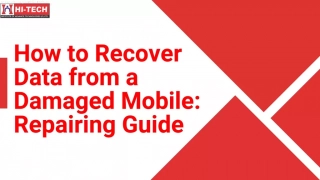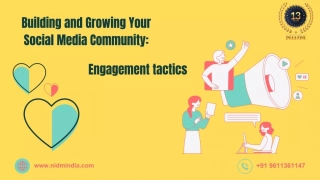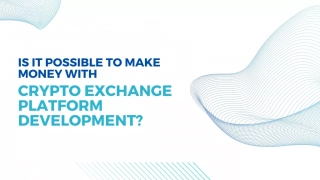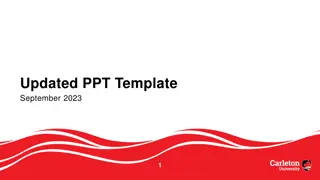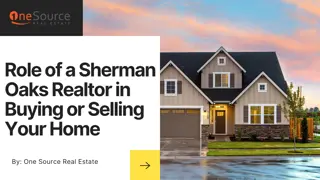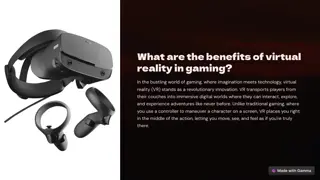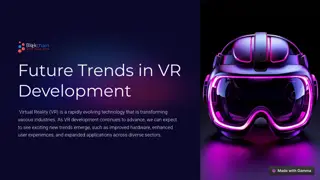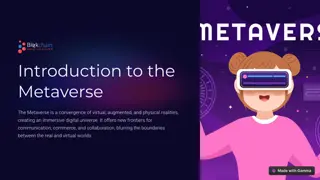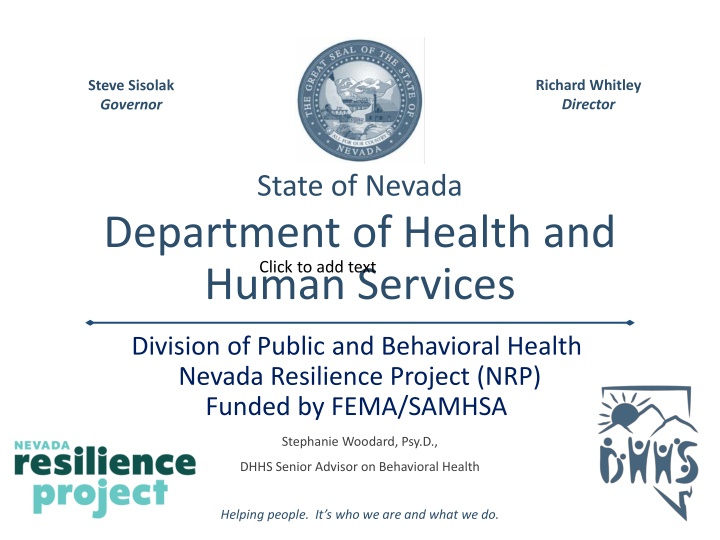
Nevada Resilience Project: Crisis Counseling and Training Program Overview
Learn about the Nevada Resilience Project, a FEMA and SAMHSA-funded initiative aimed at providing crisis counseling and training in response to disasters like COVID-19. Find out about key concepts, disaster response phases, and behavioral health activities for COVID-19 recovery.
Download Presentation

Please find below an Image/Link to download the presentation.
The content on the website is provided AS IS for your information and personal use only. It may not be sold, licensed, or shared on other websites without obtaining consent from the author. If you encounter any issues during the download, it is possible that the publisher has removed the file from their server.
You are allowed to download the files provided on this website for personal or commercial use, subject to the condition that they are used lawfully. All files are the property of their respective owners.
The content on the website is provided AS IS for your information and personal use only. It may not be sold, licensed, or shared on other websites without obtaining consent from the author.
E N D
Presentation Transcript
Richard Whitley Director Steve Sisolak Governor State of Nevada Department of Health and Human Services Click to add text Division of Public and Behavioral Health Nevada Resilience Project (NRP) Funded by FEMA/SAMHSA Stephanie Woodard, Psy.D., DHHS Senior Advisor on Behavioral Health Helping people. It s who we are and what we do.
Phases of Disaster Response and Operations 2 SAMHSA_FEMA Crisis Counseling and Training Program; https://www.samhsa.gov/dtac/ccp-toolkit
Key Concepts of Disasters A disaster is a sudden event that has the potential to terrify, horrify, or engender substantial losses for many people simultaneously. Fran Norris, Ph.D., NCPTSD No one who sees a disaster is untouched by it Affects individuals and communities People pull together during and after Stress and grief are normal reactions People s natural resilience will support individual and collective recovery Pandemics, such as COVID-19, are considered disasters 3 SAMHSA_FEMA Crisis Counseling and Training Program; https://www.samhsa.gov/dtac/ccp-toolkit
Behavioral Health COVID-19 Response and Recovery Activities Collaborate with Divisions of Emergency Management Support providers Promote telehealth Develop staff Begin prevention and early intervention Ensure access to services Plan for Nevada COVID-19 Behavioral Health Recovery Evaluate data Liaison with providers and federal partners Launch the Nevada Resilience Project 5
The Crisis Counseling Assistance & Training Grant (FEMA & SAMHSA) Nevada Resilience Project Activities 1. Primary 1. Reaching out through virtual meetings, social media, and phone calls 2. Creating or adding to existing resources 3. Offering support for individuals or groups 4. Providing educational flyers and materials to communities 2. Secondary 1. Create social media platforms 2. Offer webinars and town halls 6
The Nevada Resilience Project Strengths-based Anonymous Outreach-oriented Culturally competent Conducted in nontraditional settings Designed to strengthen existing community support systems Assumes natural resilience and competence 7 SAMHSA_FEMA Crisis Counseling and Training Program; https://www.samhsa.gov/dtac/ccp-toolkit
Population Exposure Model* *Unlike static models, the Nevada model is dynamic and addresses the changing needs of the community based on the data-driven impacts of COVID. Updated 08/19/2020 8
Vulnerable Populations Individuals and families who are bereaved Children, youth, adolescents, and their parents/caregivers Individuals and families with economic concerns, job loss, and unemployment, economic uncertainty, homelessness, food insecurity and loss of health care insurance Health care providers, law enforcement, emergency medical technicians, and firefighters Ethnic minorities, especially people who are non-English speaking, or individuals who have facilitated communication needs Tribal population Aging population Victims of Domestic Violence Individuals with pre-existing behavioral health issues or at-risk 9
Resilience Ambassadors Region Locations Connected Partners Deployed Ambassadors Washoe County Human Services Agency and Family Resource Centers (FRC) Washoe County Ambassadors (6) Boys and Girls Club of Truckee Meadows - William W. Pennington Facility - Donald L. Carano Facility - Lemmon Valley Facility - Neil Road Youth Facility - Boys and Girls Club of Fernley - Boys and Girls Club of Winnemucca Washoe County Child Ambassadors (2) Rural Child Ambassador (1) Northern Nevada Child Ambassador (1) Northern Nevada Ambassadors (3) Carson Health and Human Services and Community Partners Clark County Nevada - Southern Nevada Health District - Pending Onboarding Ambassadors during RSP Total Clark County Ambassadors (14) - SouthernNevada Health District Ambassadors (6) - Future Ambassadors for Clark County (8) Boys and Girls Club of Southern Nevada - Lied Memorial - Andre Agassi Club - Boulder Highway Club - Desert Pine Club - Donald W. Reynolds Club - Downtown Club - James Club - John C. Kish Club - John D. "Jackie" Gaughan Club - May and Sam Boyd Club - Natlie Gulbis Club - Ralph and Betty Engelstad - Southern Highlands Clark County Child Ambassadors (3) Frontier Community Coalition Rural Nevada Ambassadors (2) Crisis Support Services of Nevada Crisis Hotline Ambassadors (5) 10 Nevada Care Connection Nevada ADSD Ambassadors (2)
What Resilience Ambassadors do: Contact and Engagement Safety and Comfort Stabilization Information Gathering Practical Assistance Connection with Social Supports Information on Coping Linkage with Collaborative Services 11
Getting the Word Out Facebook, Instagram and Twitter ads in Spanish and English Directed engagement through television and radio in Spanish and English Work with partner agencies in tribal communities, as well as socially and economically disadvantaged communities. Resources through distribution of materials at locations where citizens can receive various types of support (food banks, medical, etc.) 12
Making sure we are racially and ethnically aware Work within the community to make sure there is a clear understanding of the project Provide bilingual/multilingual Resilience Ambassadors Staff is representative of all cultural and ethnic groups Community listening sessions and resilience-based discussions Black, Indigenous, People of Color (BIPOC) support network 13
Contact Information Kendall Holcomb Nevada Resilience Project Public Information Officer kholcomb@health.nv.gov (775) 431-7092 15
Never in history have we had a shared experience that has connected us like COVID. But we have an opportunity to tap into our stories and empathy to normalize our challenges and emotions and encourage one another to reach out for additional help. We can join together and become resilient as we all get through this difficult time. We re all trying to balance different challenges. From the stress of working from home while having school-age kids, to feeling a sense of loss due to unemployment, the feeling of isolation, anxiety and disconnection, and the challenges of adapting to the new normal, there is someone who understands and people who can help. 16
Questions? 17




